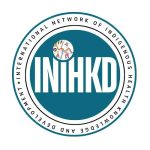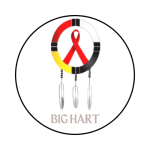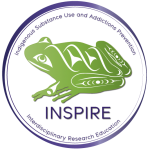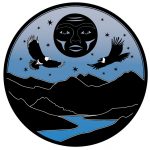Projects & Programs
Programs

International Network of Indigenous Health Knowledge and Development 2025 Reclaiming Indigenous Ecologies of Love
Visit the Conference Portal The International Network of Indigenous Health Knowledge and Development (INIHKD) committee and hosts Indigenous Wellness Research Institute (IWRI), are inviting abstract submissions for the in-person INIKHD 2025 conference, which will focus under the theme “Reclaiming Indigenous Ecologies of Love/RIEL.” The INIHKD RIEL 2025 Conference seeks to elevate and amplify Indigenous voices...

BIG HART
Building upon IHART’s* notable achievements and leveraging its network of Indigenous mentors, the University of Washington initiated the “Building Indigenuity, Generating HIV Science: HIV/AIDS Research Training (BIG HART)” pilot program in collaboration with the George Washington University CFAR’s CDEIPI program. Since its launch in February 2022, BIG HART has been introducing both undergraduate and graduate...
Itzá: Indigenous HIV/AIDS Research Training 3 (IHART3) Program
Applications are open until filled. Indigenous HIV/AIDS-related health disparities have been linked to social, economic, and political inequities as well as to historical land loss, cultural devastation and a lack of access to healthy environments and health services. AIMS: The aim of the IHART3-Itzá program is to develop a strong network of highly trained and...

INSPIRE
INSPIRE: An Indigenous Substance Use and Addictions Prevention Interdisciplinary Research Education program The Indigenous Wellness Research Institute is proud to host INSPIRE, a training program aimed at encouraging American Indian/Alaska Native and Native Hawaiian/Pacific Islander to pursue careers in substance abuse and addictions related health disparities research. INSPIRE is 24-month-long training program that features individualized...

LUNA
By the light of the moon, we are Lighting Up Native Aspirations (LUNA) for health research careers Applications for Cohort 5 will open on October 15, 2023 and close December 31, 2023. Open until filled. The LUNA program is built of a strong network of highly trained Indigenous scholars dedicated to culturally relevant research who...
Measurement of Major Stressful Events Over Life Courses
The study addressed problems of conceptualization and measurement of major stressful events in order to develop reliable and valid measures of objective general and specific characteristics of major, stressful life events over the life course. Our role on this grant was to oversee the American Indian Vietnam Veterans rating and coding of life events. More...
Healthy Hearts 2–P60 project More Info
To improve the cardiovascular health of Northwest American Indians, new health programs might help community members protect themselves against diabetes, obesity, tobacco use, and depression. The Healthy Hearts, Healthy Minds research study is developing a culturally-adapted counseling program to address depression symptoms in AIs who are pre-diabetic or have diabetes. The goals of this study...
Community Needs Assessment for Chlamydial Screening among Young American Indian Women Living in the Pacific Northwest
The goal of this study is to gather preliminary data to inform the development an intervention to increase chlamydial screening and treatment among AIAN women living on or near the reservation. The long-term goal of this work is to reduce the morbidity caused by chlamydia and decrease racial disparities in the burden of chlamydia among...
NIMHD Comprehensive Centers of Excellence (P60)
This infrastructure development grant is designed to develop the Indigenous Wellness Research Institute at the University of Washington as a National Comprehensive Center of Excellence devoted to AIAN health and health disparities research and to develop a cadre of NIH-funded AIAN behavioral scientists.
Vision to Action: Achieving Health Equity in Indian Country
The specific aims are to: (1) Engage tribal and native community partners and researchers in planning and identification of research opportunities to ameliorate behaviorally- and socially-based negative health conditions; (2) Build capacity in health disparities research through a series of workshop discussions/trainings about the latest advances in indigenous and Western research methods, policies, processes, and...
Next page



